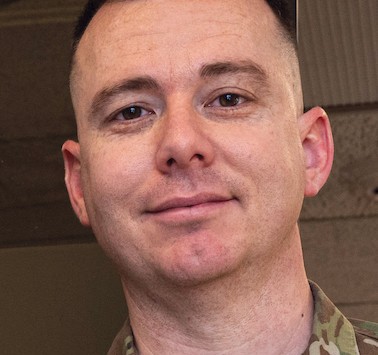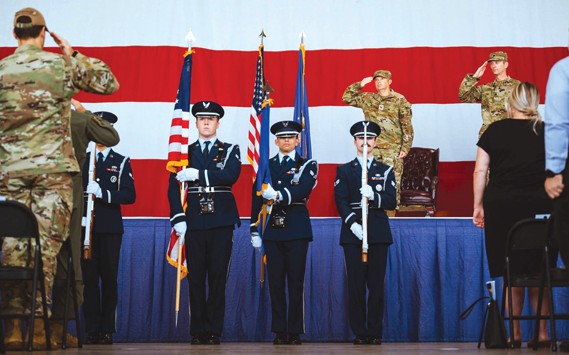Editor’s note: This commentary was first published July 27, 2015.
MOUNTAIN HOME AIR FORCE BASE, Idaho — I woke up to the sun peeping through my window, as dawn broke over the mountains. I got up and went straight to the kitchen to make the family breakfast, yet all I could think about was, “How am I going to manage taking care of my children, dogs and work life while my husband is gone?” Knowing I’d have twice as much to do at home while balancing my military work, made my heart sink a bit.
Growing up as a military child, I knew separation could hit at any time and be extremely hard. Looking back, I now know how alone my mother felt whenever my father deployed or went TDY. It seems like an eternity waiting for your loved one to return home so you aren’t carrying all the weight on your shoulders.
There are dozens of base agencies to make separations easier, but I hadn’t realized it yet.
After just three days of being without my spouse, I felt like the world was crashing down on me. I felt like a first-time mother wondering if I was doing anything right and feeling completely overwhelmed. My office began to notice a change in my attitude and how quickly I became agitated by insignificant events.
A co-worker and I began meeting once a week to discuss everything that was on our minds. Although it was nice to vent and get some relief, it only went so far with reducing the stress.
Unfortunately, because of works schedules, it was difficult to Skype with my husband for more than an hour or so a day.
One day when I was picking up my children, a staff member at the child development center stopped me and asked, “Is there anything going on in your household?”
I explained that my husband was TDY, and I’d been dealing with a lot of stress.
She told me my son wasn’t acting like himself either. I had been so consumed with my own problems, I hadn’t noticed how my family was doing.
The caregiver said, “Your son is starting to become antisocial, he’s not eating well and is a bully at daycare.”
I felt as if I was failing as a mother. I had to get help, not only for my son but for myself as well. I had no idea where to start.
The caregiver gave me a pamphlet about dealing with separation and inside was a card. I called and made an appointment to talk to a counselor.
We discussed my everyday routine. I felt comforted when I could see I wasn’t failing as a mother.
The counselor explained that regardless of a child’s age, the child can tell when a family member is gone or stressed. Although you may think it won’t rub off on them, it does.
As we continued our conversation he recommended some exercises with my children.
One exercise was the 1-2-3 method, also known as the “count” to stop behavior. If your child is having a tantrum or isn’t listening, this exercise helps your child to learn, think and take responsibility for his actions. Doing this sends the message that your authority is not negotiable before you act with a consequence. This consequence doesn’t necessarily have to be a big thing. It can simply be redirecting your child toward doing something else, like assisting you with putting items away or reading a book with them.
He explained that the more I get involved with my children, the better. I should replace that sense of separation with love and care for my children, helping to distract that feeling of loneliness in them and me.
After discussing how I could help my children, the counselor asked, “How are you handling all this?”
I said I had struggled with trying to keep everything the same as when my husband was at home. I felt overwhelmed and stressed and so did my children.
He explained no matter how much I wanted things to be the same, they weren’t. All I could do was make the best of each situation. Not only that, I should find a hobby that would help to diminish the stress.
I took what the counselor said to heart. My son is no longer being antisocial; he’s eating more and being nicer to other kids. I still have to deal with his “terrible-2” moments, with and my 1-year-old daughter sometimes joining him, but for the most part, they’re back to normal.
Even when you feel there’s nowhere to turn for help, there’s always someone who cares and can guide you in the right direction. There are other resources on base to support you in times of need, such as the Airman and Family Readiness Center, key spouse groups, first shirts and mental health.
Whether it’s a friend, family member, counselor or even just writing a journal, there are always avenues for help.
You’re not alone.












